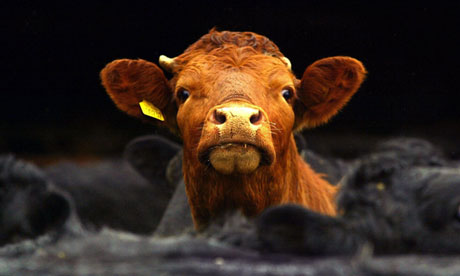Atypical case of mad cow disease reported

Canada dutifully reported a case of atypical bovine spongiform encephalopathy (BSE) in an 8-1/2 year old beef cow in Alberta, the World Organisation for Animal Health (OIE) reported in a global press release this past Monday.
According to reports, the carcass did not enter the human food or animal feed chains while in Ottawa the Canadian Food Inspection Agency stated the discovery should not affect market access for Canadian animals and beef products.
“Atypical strains occur naturally and sporadically in all cattle populations at a very low rate and have only been identified in older cattle,” the agency said in their statement.
“The news of BSE detected in a cow this week, is serious stuff for a beef industry that has already had its share of hits in a very tough year“
Previously, the most recent confirmed case had been in 2015, in a cow born in 2009. But the CFIB is tent poling trade confidence by stating the agency has been keeping measures in place since the crippling BSE outbreak 20-years-ago to prevent cattle tissues capable of transmitting BSE from getting into the food system.
The outbreak of BSE, more commonly known as mad cow disease, that badly hit Canadian beef exports in 2003, resulting in some 40 export markets closing to the country’s beef, was detected on an Alberta cattle farm. Many of those markets have long since reopened, yet Canada’s risk level, monitored and determined by the OIE, had only been changed to “negligible risk,” the OIE’s most preferred status, from “controlled risk,” in May of this year, bolstering Canada’s efforts to gain access to new – or in this case, many formerly closed export markets, Agriculture Minister Marie-Claude Bibeau said in a statement release this spring.
As a result, the cattle industry from coast to coast breathed a major sigh of relief as the new status had Canada’s beef finally on an equal footing with trade competitors like the United States. But it was a long road back. After applying to the OIE for an upgraded status back in 2020, as well as demonstrating that any infected domestic animals were born more than 11 years prior, could the OIE consider lifting the “negligible risk” status.
So, suffice to say, the news of BSE detected in a cow this week, is serious stuff for a beef industry that has already had its share of hits in a very tough year; droughts, floods, culling, and a COVID pandemic that has slammed all levels of the industry.
BSE is a progressive, fatal neurological disease spread when cattle eat protein rendered from the brains and spines of infected cattle or sheep. Here in Canada, where we are the world’s seventh-largest beef exporter, the practice was banned in 1997.












